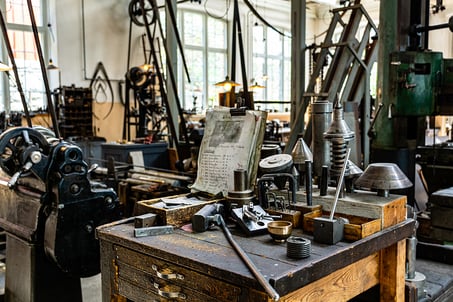
We see many instances where business owners and individuals no longer need to operate used machinery or have recently acquired older equipment and personal property as part of a larger purchase or estate settlement. In any of these cases, the assets are no longer useful, and there becomes a need to decide the best option for transferring ownership.
The first thought is usually determining the ability to sell or liquidate the assets; however, this process may be difficult, especially if demand is limited or the owner is unfamiliar with the potential resale markets. As an alternative, donating the property to a local business, university, training school, or non-profit organization might be a better choice. The benefits of a tax deduction and supporting your community or alma mater might outweigh the uncertainty and time-consuming process of trying to sell the items on your own.
Before you decide which options are best, it is a good idea to consult with your accountant as well as an accredited professional appraiser, especially if you know the total value of the donation will be significant. The IRS rule is that an independent appraisal is required as part of any deduction claim in excess of $5,000. You must also include Form 8283 as part of your income tax filing. The form needs to be signed by you, the appraiser, and the party you are donating to.
The cost of the appraisal can sometimes become a challenge in comparison to the tax benefit. For example, suppose you have dozens of small items that are being donated together, and all need to be appraised. In that case, the total value might not support the cost given the valuation process will be time-consuming. You need to broadly calculate your expected tax deduction by approximating the total value of your donation and multiplying it by your estimated adjusted income tax percentage.
As an example, a $50,000 donation would result in a $10,000 deduction for someone in the 20% tax bracket. If the appraisal costs $5,000, you will end up with a $5,000 overall benefit for the donation. A lower overall value for your donation will create a more price-sensitive situation regarding the appraisal cost, and vice versa.
It is important to review and discuss these scenarios with your accountant and the appraiser to try and create an affordable option that makes sense for you. Grouping together some of the less expensive items for the purpose of valuing them might be one viable way to save on the time and cost of completing the appraisal. The focus can then be placed on the higher-valued property for the purpose of detailing and itemizing the report.

